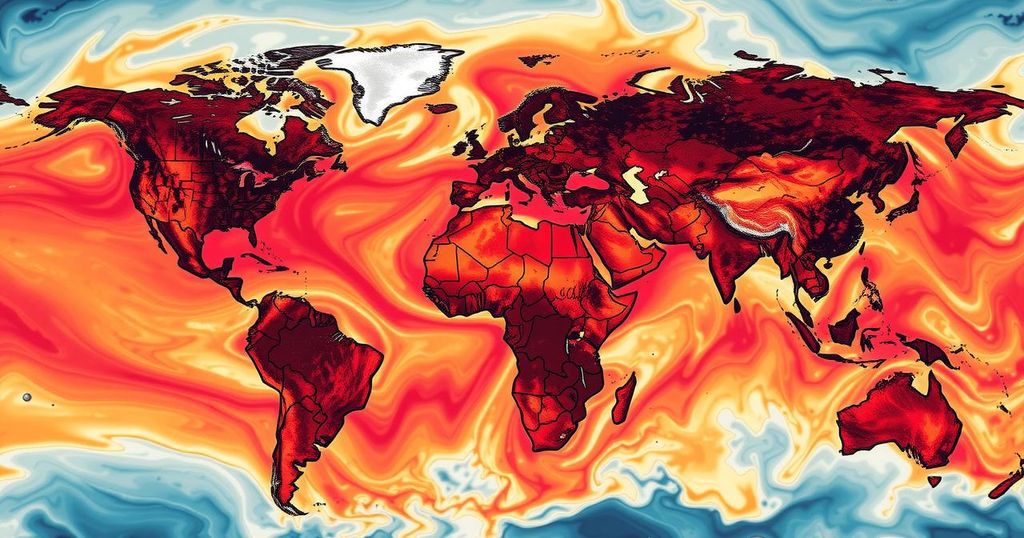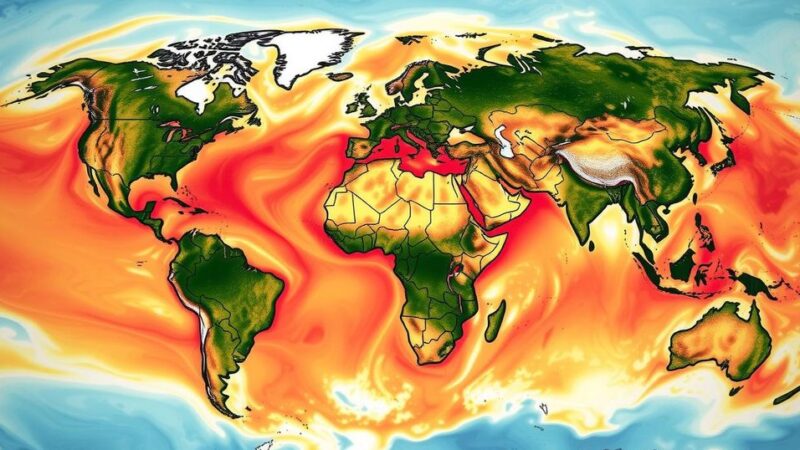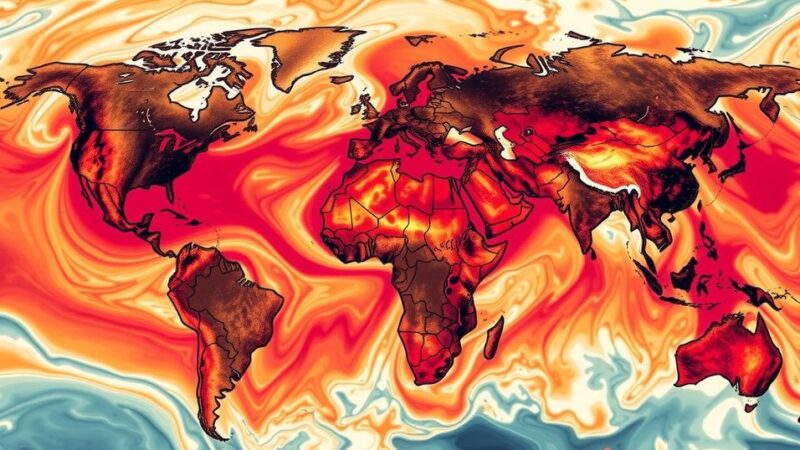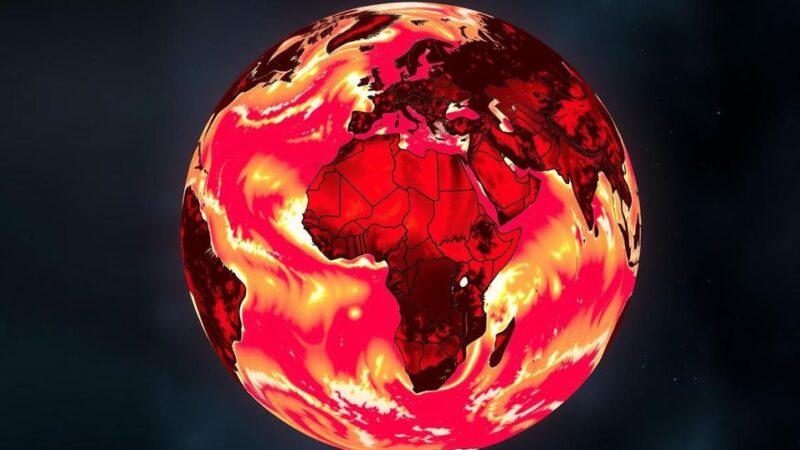Global temperatures surpassed 1.5°C in 2024, confirming it as the hottest year on record, largely due to extensive greenhouse gas emissions and the El Niño effect. Resulting natural disasters have highlighted the urgent need for action. The increasing pace of temperature rises poses significant challenges to climate models and agreements aimed at limiting global warming.
In 2024, global temperatures exceeded the critical threshold of 1.5°C above pre-industrial levels, marking the highest annual temperature recorded. Scientific assessments from the UK’s Met Office and the EU’s Copernicus Climate Service confirmed this alarming statistic, indicating that nations are falling short of the Paris Agreement objectives aimed at limiting warming to an average of 1.5°C. Notably, this year’s extreme heat is attributed to a combination of the El Niño phenomenon, which enhances global temperatures, and significant greenhouse gas emissions. Collateral effects have emerged, including widespread natural disasters, demonstrating a troubling acceleration in climate impacts.
Amidst this alarming scenario, researchers express concern over the pace at which temperatures are rising, with the year 2024 heralded as the hottest on record, surpassing the previous year, 2023. The climate scientists are perplexed by this rapid increase, positing potential contributing factors such as diminished sulfur aerosols due to environmental regulations that have inadvertently facilitated more heat absorption, reduced cloud coverage, and the lingering effects of the preceding La Niña climate pattern. The complexities of these interactions underscore the urgent need for comprehensive analysis to mitigate future warming.
The significance of 2024’s temperature surpassing the 1.5°C threshold rests within the global commitment established by the Paris Agreement; countries aimed to restrict warming and alleviate climate change consequences. Notably, both the Met Office and the Copernicus Climate Service independently corroborated this unprecedented temperature spike, which has raised concerns about sustainability efforts. The intertwining of natural climate phenomena, such as El Niño, and human-driven greenhouse gas emissions complicates predictive models and raises alarm about the direction of global warming.
The year 2024 has set a worrying precedent in climate history by breaching the 1.5°C global warming target, signaling urgent concerns for global climate objectives. As researchers seek to pinpoint the drivers behind these unprecedented temperature levels, it is clear that past climate models may need recalibrating to accommodate the accelerated warming effects observed. Continued monitoring and policymakers’ swift action are imperative to navigate the path forward, ensuring the mitigation of further damages from climate change.
Original Source: www.insurancejournal.com







